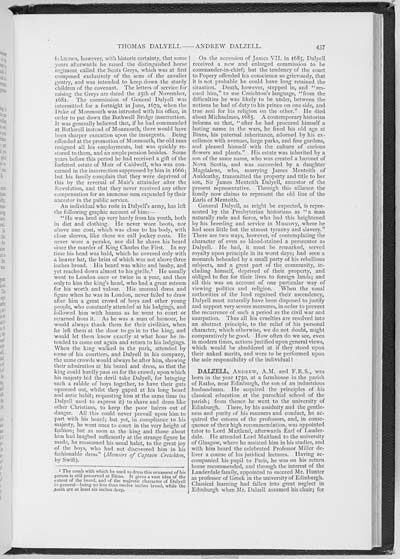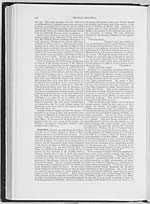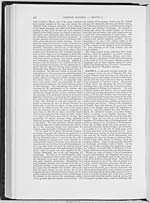437
is known, however, with historic certainty, that some
years afterwards he raised the distinguished horse
regiment called the Scots Greys, which was at first
composed exclusively of the sons of the cavalier
gentry, and was intended to keep down the sturdy
children of the covenant. The letters of service for
raising the Greys are dated the 25th of November,
1681. The commission of General Dalyell was
intermitted for a fortnight in June, 1679, when the
Duke of Monmouth was intrusted with his office, in
order to put down the Bothwell Bridge insurrection.
It was generally believed that, if he had commanded
at Bothwell instead of Monmouth, there would have
been sharper execution upon the insurgents. Being
offended at the promotion of Monmouth, the old man
resigned all his employments, but was quickly re-
stored to them, and an ample pension besides. Some
years before this period he had received a gift of the
forfeited estate of Muir of Caldwell, who was con-
cerned in the insurrection suppressed by him in 1666;
but his family complain that they were deprived of
this by the reversal of Muir's attainder after the
Revolution, and that they never received any other
compensation for an immense sum expended by their
ancestor in the public service.
An individual who rode in Dalyell's army, has left
the following graphic account of him:�
"He was bred up very hardy from his youth, both
in diet and clothing. He never wore boots, nor
above one coat, which was close to his body, with
close sleeves, like those we call jockey coats. He
never wore a peruke, nor did he shave his beard
since the murder of King Charles the First. In my
time his head was bald, which he covered only with
a beaver hat, the brim of which was not above three
inches broad. His beard was white and bushy, and
yet reached down almost to his girdle.1 He usually
went to London once or twice in a year, and then
only to kiss the king's hand, who had a great esteem
for his worth and valour. His unusual dress and
figure when he was in London, never failed to draw
after him a great crowd of boys and other young
people, who constantly attended at his lodgings, and
followed him with huzzas as he went to court or
returned from it. As he was a man of humour, he
would always thank them for their civilities, when
he left them at the door to go in to the king, and
would let them know exactly at what hour he in-
tended to come out again and return to his lodgings.
When the king walked in the park, attended by
some of his courtiers, and Dalyell in his company,
the same crowds would always be after him, showing
their admiration at his beard and dress, so that the
king could hardly pass on for the crowd; upon which
his majesty bid the devil take Dalyell, for bringing
such a rabble of boys together, to have their guts
squeezed out, whilst they gaped at his long beard
and antic habit; requesting him at the same time (as
Dalyell used to express it) to shave and dress like
other Christians, to keep the poor bairns out of
danger. All this could never prevail upon him to
part with his beard; but yet, in compliance to his
majesty, he went once to court in the very height of
fashion; but as soon as the king and those about
him had laughed sufficiently at the strange figure he
made, he reassumed his usual habit, to the great joy
of the boys, who had not discovered him in his
fashionable dress" (Memoirs of Captain Creichton,
by Swift).
1 The comb with which he used to dress this ornament of his
person is still preserved at Binns. It gives a vast idea of the
extent of the beard, and of the majestic character of Dalyell
in general�being no less than twelve inches broad, while the
teeth are at least six inches deep.
On the accession of James VII. in 1685, Dalyell
received a new and enlarged commission to be
commander-in-chief; but the tendency of the court
to Popery offended his conscience so grievously, that
it is not probable he could have long retained the
situation. Death, however, stepped in, and "res-
cued him," to use Creichton's language, "from the
difficulties he was likely to be under, between the
notions he had of duty to his prince on one side, and
true zeal for his religion on the other." He died
about Michaelmas, 1685. A contemporary historian
informs us that, "after he had procured himself a
lasting name in the wars, he fixed his old age at
Binns, his paternal inheritance, adorned by his ex-
cellence with avenues, large parks, and fine gardens,
and pleased himself with the culture of curious
flowers and plants." His estate was inherited by a
son of the same name, who was created a baronet of
Nova Scotia, and was succeeded by a daughter
Magdalene, who, marrying James Menteith of
Auldcathy, transmitted the property and title to her
son, Sir James Menteith Dalyell, ancestor of the
present representative. Through this alliance the
family now claims to represent the old line of the
Earls of Menteith.
General Dalyell, as might be expected, is repre-
sented by the Presbyterian historians as "a man
naturally rude and fierce, who had this heightened
by his breeding and service in Muscovy, where he
had seen little but the utmost tyranny and slavery."
There are two ways, however, of contemplating the
character of even so blood-stained a persecutor as
Dalyell. He had, it must be remarked, served
royalty upon principle in its worst days; had seen a
monarch beheaded by a small party of his rebellious
subjects, and a great part of the community, in-
cluding himself, deprived of their property, and
obliged to flee for their lives to foreign lands; and
all this was on account of one particular way of
viewing politics and religion. When the usual
authorities of the land regained their ascendency,
Dalyell must naturally have been disposed to justify
and support very severe measures, in order to prevent
the recurrence of such a period as the civil war and
usurpation. Thus all his cruelties are resolved into
an abstract principle, to the relief of his personal
character, which otherwise, we do not doubt, might
comparatively be good. How often do we see, even
in modern times, actions justified upon general views,
which would be shuddered at if they stood upon
their naked merits, and were to be performed upon
the sole responsibility of the individual!
DALZELL, ANDREW, A.M. and F.R.S., was
born in the year 1750, at a farmhouse in the parish
of Ratho, near Edinburgh, the son of an industrious
husbandman. He acquired the principles of his
classical education at the parochial school of the
parish; from thence he went to the university of
Edinburgh. There, by his assiduity and the gentle-
ness and purity of his manners and conduct, he ac-
quired the esteem of the professors, and, in conse-
quence of their high recommendation, was appointed
tutor to Lord Maitland, afterwards Earl of Lauder-
dale. He attended Lord Maitland to the university
of Glasgow, where he assisted him in his studies, and
with him heard the celebrated Professor Miller de-
liver a course of his juridical lectures. Having ac-
companied his pupil to Paris, he was on his return
home recommended, and through the interest of the
Lauderdale family, appointed to succeed Mr. Hunter
as professor of Greek in the university of Edinburgh.
Classical learning had fallen into great neglect in
Edinburgh when Mr. Dalzell assumed his chair; for

![]() Universal Viewer |
Universal Viewer | ![]() Mirador |
Large image | Transcription
Mirador |
Large image | Transcription
![]()

